The Current Tech Rally is Driven by AI…and the Fed.
July 11th, 2023 | Posted in InvestingWhat’s Driving the Current Tech Rally? Artificial Intelligence and the Fed
Stocks posted a strong rally in the first half of 2023, but many market-watchers are quick to point out that there’s really one category responsible for a lion’s share of the gains: mega-cap tech stocks.
The chart below demonstrates tech’s leadership. The tech-heavy Nasdaq (blue line) is clearly seen diverging to the upside relative to the S&P 500 in 2023. Many of these gains have been driven by the very biggest names in the industry, like Tesla, Nvidia, Meta, and others.
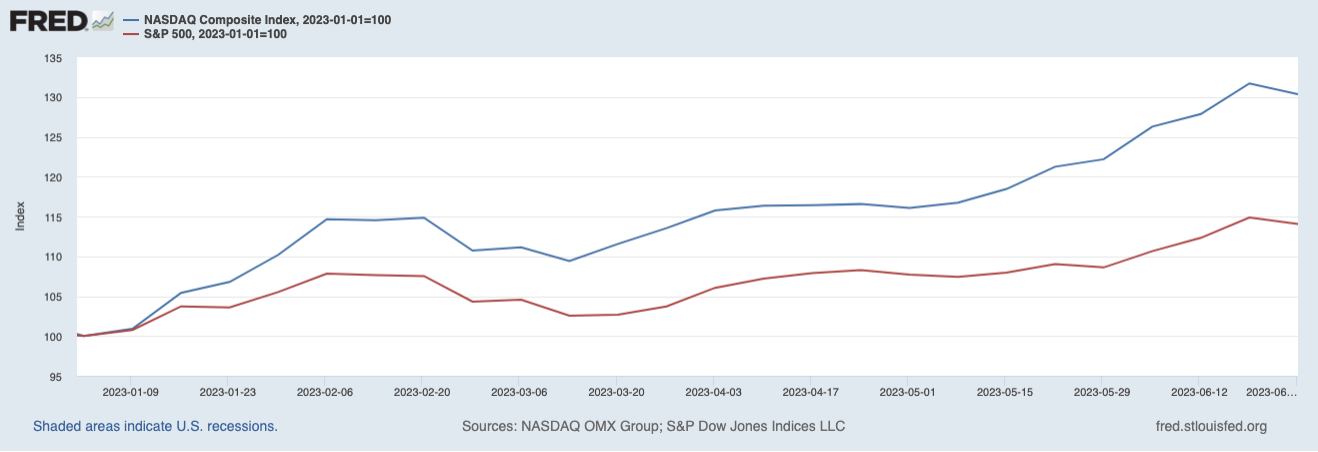
The powerful rally in tech shares has many investors wondering if this run is the prologue for an eventual bust, much like we saw in 1999. There are certainly similarities – in each rally, investors were seen betting on companies they believed would be the leaders in transforming the economy with new technology. Back then it was the internet. Today it’s AI.
Positioning Your Investments for a Volatile Market
“Don’t put all your eggs in one basket.” It’s a classic proverb, and for good reasons. Diversifying your portfolio is one the most basic pieces of investing advice—but unfortunately, it’s also advice that too many investors ignore.
Zacks Advantage would like to help you ensure that your investments are properly diversified so that you can avoid the risks of over-concentration in any particular asset class. That’s why we’re offering our free guide, Is Your Investment Portfolio Actually Well-Diversified? 2
Act now to get the basics of diversification, including:
- Why the average investor’s returns lag behind almost every investment category
- 4 myths of a diversified portfolio
- How to create a truly well-diversified portfolio
Learn more with our free guide, Is Your Investment Portfolio Actually Well-Diversified? 2
There is reason to be cautious. We know from 1999 that picking long-term winners proved to be elusive, with many hyped companies failing to survive the bust. The lesson from that time should be applied by investors today when surveying the landscape of AI. It would not be crazy to think that many of the companies appearing to be at the forefront of the AI revolution may not be around 10 years from now.
This is not to short-change the potential impact AI can have on economic growth and the labor market. We have written before that automation of routine tasks, optimization of business processes, personalization of the customer experience, predictive analytics, and development of new products and services look poised to change the very nature of business and work. But that’s a different statement than claiming to know which companies will ultimately lead the way.
In short, technological innovation seems likely to result in a substantial wave of new growth and profit generation, but knowing which companies will enjoy these durable earnings is a major question.
Which brings up the second driver of tech’s rally so far in 2023: the Fed. To understand how the U.S. central bank has any connection to technology stocks, it’s important to look back to late 2021 and early 2022, when the Fed made the pivot to tighter monetary policy and first started raising rates. Interestingly enough, the Nasdaq’s peak in that bull market came in mid-November 2021, which coincided very closely with the Federal Reserve’s shift in policy.
Questions started to swirl about the impact rising interest rates would have on stocks, for good reason – investors understood that rising rates would result in multiple compression over time, and in the near-term would deal a major blow to high valuation stocks, especially high-flying ‘growthy’ tech names. That’s precisely what happened, with technology shares bearing a brunt of the market downturn in 2022.
Fast-forward to today, however, and investors appear to be forecasting that the Fed is just about done raising rates. Part of this rationale is the Fed itself, which paused interest rate increases at its last meeting – though also signaling more rates could be ahead. Another rationale is falling inflation and inflation expectations, which investors think will be enough to warrant more caution from the central bank. As seen in the chart below, the 1-year, 2-year, and 5-year inflation expectations have all fallen back to pre-pandemic levels.
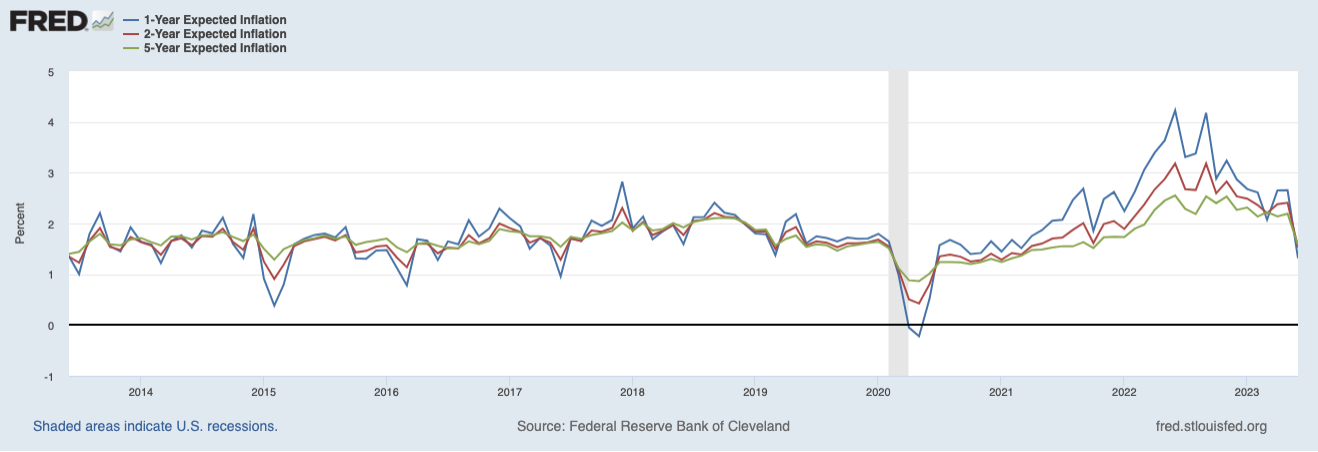
If the market does not see inflation being a long-term problem, it follows that the Fed should not pose a further headwind to tech shares, either. This line of thinking warrants the same kind of caution investors should apply to the promise of AI, in our view. AI’s revolutionary impact, much like a Fed decision to hold rates close to where they are today, are not foregone conclusions.
Bottom Line for Investors
Technology is clearly a driving force of innovation and economic growth, but that does not mean it’s a smart investment strategy to jump into companies that appear to be at the forefront of the AI ‘revolution.’ A better approach, in our view, is broad exposure to the sector via ETFs, which will allow investors to gain exposure to the leaders in the field as it evolves over time. Instead of trying to pick winners in a crowded and ever-changing sector, we think for many it can make better sense to simply own the sector.
Most investors can get where they need to go over the long term by owning a diversified portfolio of stocks and/or ETFs. In fact, “diversify your portfolio” is one the most basic pieces of investing advice. Sadly, in our experience many investors still put all (or most) of their eggs in one basket.
At Zacks Advantage, we strive to help every investor properly allocate their assets. In fact, we’ve put together a helpful guide to help you understand the basics of portfolio diversification, including:
- 4 myths of a properly diversified portfolio
- Why the average investor’s returns trail almost every other investment category
- How to create a truly well-diversified portfolio
Get our free guide, Is Your Investment Portfolio Actually Well-Diversified?,4 to learn how to create a truly diversified portfolio.
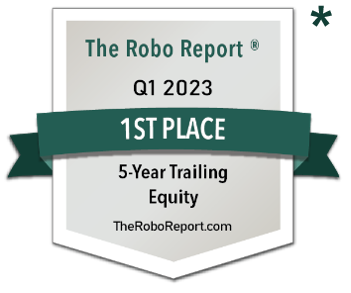
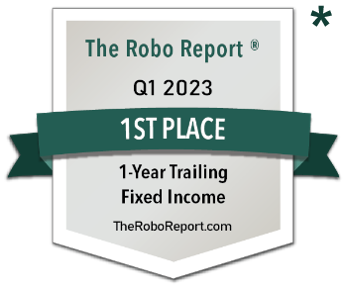
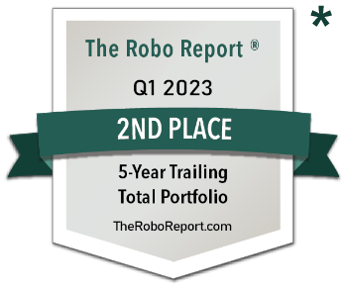
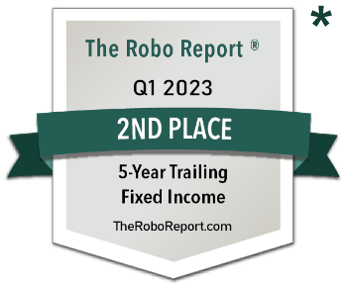
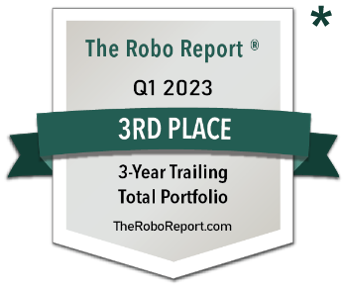
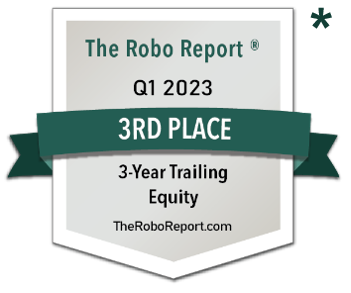
*This rating was awarded by The Robo Report on 4/1/2023 in respect of the period 1/1/2023 to 4/1/2023. We do not compensate The Robo Report to obtain this rating. However, we pay compensation to the Robo Report to use their logo in connection with advertising this rating.
© 2023 Zacks Advantage | Privacy Policy | Unsubscribe
1 Fred Economic Data. July 3, 2023.
2 Zacks Investment Management may amend or rescind the Is Your Investment Portfolio Actually Well-Diversified? guide offer for any reason and at Zacks Investment Management’s discretion.
3 Fred Economic Data. June 30, 2023.
4 Zacks Investment Management may amend or rescind the Is Your Investment Portfolio Actually Well-Diversified? guide offer for any reason and at Zacks Investment Management’s discretion.
DISCLOSURE
Past performance is no guarantee of future results. Inherent in any investment is the potential for loss.
Zacks Advantage is a service offered by Zacks Investment Management, a wholly-owned subsidiary of Zacks Investment Research.
Zacks Investment Management, Inc. is a wholly-owned subsidiary of Zacks Investment Research. Zacks Investment Management is an independent Registered Investment Advisory firm and acts as an investment manager for individuals and institutions. Zacks Investment Research is a provider of earnings data and other financial data to institutions and to individuals.
This material is being provided for informational purposes only and nothing herein constitutes investment, legal, accounting or tax advice, or a recommendation to buy, sell or hold a security. Do not act or rely upon the information and advice given in this publication without seeking the services of competent and professional legal, tax, or accounting counsel. Publication and distribution of this article is not intended to create, and the information contained herein does not constitute, an attorney-client relationship. No recommendation or advice is being given as to whether any investment or strategy is suitable for a particular investor. It should not be assumed that any investments in securities, companies, sectors or markets identified and described were or will be profitable. All information is current as of the date of herein and is subject to change without notice. Any views or opinions expressed may not reflect those of the firm as a whole.
Any projections, targets, or estimates in this report are forward looking statements and are based on the firm’s research, analysis, and assumptions. Due to rapidly changing market conditions and the complexity of investment decisions, supplemental information and other sources may be required to make informed investment decisions based on your individual investment objectives and suitability specifications. All expressions of opinions are subject to change without notice. Clients should seek financial advice regarding the appropriateness of investing in any security or investment strategy discussed in this presentation.
Certain economic and market information contained herein has been obtained from published sources prepared by other parties. Zacks Investment Management does not assume any responsibility for the accuracy or completeness of such information. Further, no third party has assumed responsibility for independently verifying the information contained herein and accordingly no such persons make any representations with respect to the accuracy, completeness or reasonableness of the information provided herein. Unless otherwise indicated, market analysis and conclusions are based upon opinions or assumptions that Zacks Investment Management considers to be reasonable. Any investment inherently involves a high degree of risk, beyond any specific risks discussed herein.
The S&P 500 Index is a well-known, unmanaged index of the prices of 500 large-company common stocks, mainly blue-chip stocks, selected by Standard & Poor’s. The S&P 500 Index assumes reinvestment of dividends but does not reflect advisory fees. The volatility of the benchmark may be materially different from the individual performance obtained by a specific investor. An investor cannot invest directly in an index.
Robo investments are subject to some unique risks, including, but not limited to, the fact that investment decisions are made by algorithms based on investors’ answers to questions, there is a lack of human involvement, and there is the possibility that the software may not always perform exactly as intended or disclosed. Such investment programs are only suitable for investors who can bear the risk of a complete loss of their investments.
The S&P GSCI is the first major investable commodity index. It is one of the most widely recognized benchmarks that is broad-based and production weighted to represent the global commodity market beta. The index is designed to be investable by including the most liquid commodity futures, and provides diversification with low correlations to other asset classes. The volatility of the benchmark may be materially different from the individual performance obtained by a specific investor. An investor cannot invest directly in an index.
The NASDAQ-100 Index includes 100 of the largest domestic and international non-financial companies listed on The NASDAQ Stock Market based on market capitalization. The Index reflects companies across major industry groups including computer hardware and software, telecommunications, retail/wholesale trade and biotechnology. Index composition is reviewed on an annual basis in December. An investor cannot invest directly in an index. The volatility of the benchmark may be materially different from the individual performance obtained by a specific investor.
Zacks Investment Management 10 S. Riverside Plaza, Suite 1600 Chicago IL 60606-3830
Past performance is no guarantee of future results. Inherent in any investment is the potential for loss
Zacks Advantage is a service offered by Zacks Investment Management, a wholly-owned subsidiary of Zacks Investment Research. Zacks Investment Management is an independent Registered Investment Advisory firm and acts as an investment manager for individuals and institutions. All material in presented on this page is for informational purposes only and no recommendation or advice is being given as to whether any investment or strategy is suitable for a particular investor. Nothing herein constitutes investment, legal, accounting or tax advice. The information contained herein has been obtained from sources believed to be reliable but we do not guarantee accuracy or completeness. Zacks Investment Management, Inc. is not engaged in rendering legal, tax, accounting or other professional services. Publication and distribution of this article is not intended to create, and the information contained herein does not constitute, an attorney- client relationship. Do not act or rely upon the information and advice given in this publication without seeking the services of competent and professional legal, tax, or accounting counsel.

